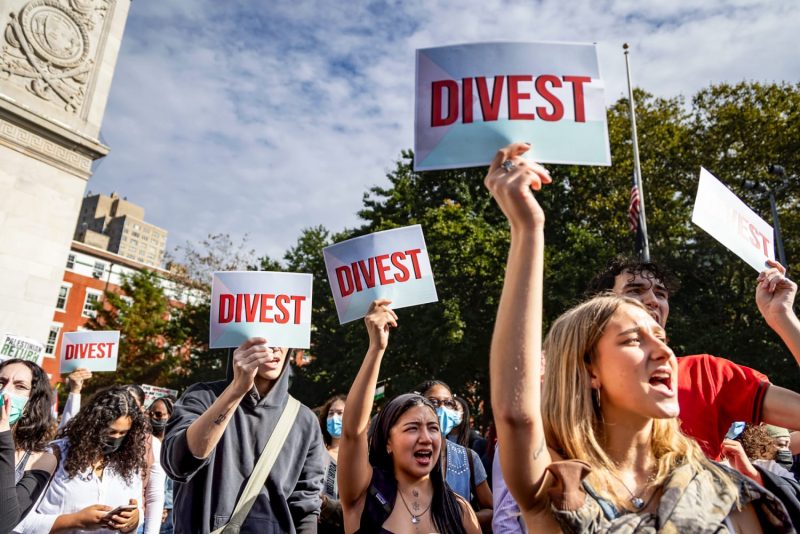The movement to divest from companies with alleged ties to Israel has been gaining traction among college protesters in various universities across the United States. This divestment campaign aims to pressure educational institutions to sever financial relationships with entities that are believed to contribute to human rights violations in Israel and Palestine.
Divestment from Israel is a concept rooted in the Boycott, Divestment, and Sanctions (BDS) movement, which was launched in 2005 by a coalition of Palestinian civil society groups. The BDS movement calls for nonviolent economic measures to pressure Israel to comply with international law and respect the rights of Palestinians. Divestment specifically targets companies that are involved in supporting or benefiting from Israeli occupation and settlements in Palestinian territories.
When students advocate for their schools to divest from ties to Israel, they are essentially calling on their institutions to ethically manage their investments and uphold human rights principles. For some protesters, divestment represents a stance against complicity in what they perceive as the oppression of Palestinians by the Israeli government. By requesting divestment, students are seeking to align their universities’ investment practices with social justice values and moral imperatives.
Implementing divestment from companies linked to Israel involves a strategic and deliberate process. It typically begins with research to identify corporations that are directly or indirectly contributing to violations of international law and human rights in the region. Once these companies are identified, protesters urge their universities to divest from these entities by selling off their holdings and redirecting investments into more socially responsible alternatives.
The debate surrounding divestment from Israel is often contentious and polarizing. Advocates of divestment argue that it is a peaceful way to put pressure on Israel to change its policies and practices in the occupied territories. They believe that divestment is a legitimate form of nonviolent resistance against injustice and occupation. On the other hand, opponents of divestment assert that such actions are politically motivated and unfairly target Israel, singling it out for criticism while ignoring other countries with poor human rights records.
College protesters who push for divestment from ties to Israel face challenges and pushback from various stakeholders, including university administrators, donors, and pro-Israel advocacy groups. These opponents often frame divestment initiatives as divisive, anti-Semitic, or counterproductive to peace efforts in the region. The dialogue between divestment proponents and detractors is complex, reflecting broader debates about Israel/Palestine relations, corporate responsibility, and campus activism.
Overall, the call to divest from companies with links to Israel reflects a growing awareness and concern among college students about ethical investing and social justice issues. As the movement continues to unfold on campuses nationwide, it raises important questions about the role of universities in promoting human rights, supporting marginalized communities, and fostering a climate of inclusivity and responsible engagement with global affairs. Whether or not colleges ultimately choose to divest from ties to Israel, the conversations and actions sparked by student protesters contribute to a larger dialogue about justice, accountability, and solidarity in the pursuit of a more just world.




























